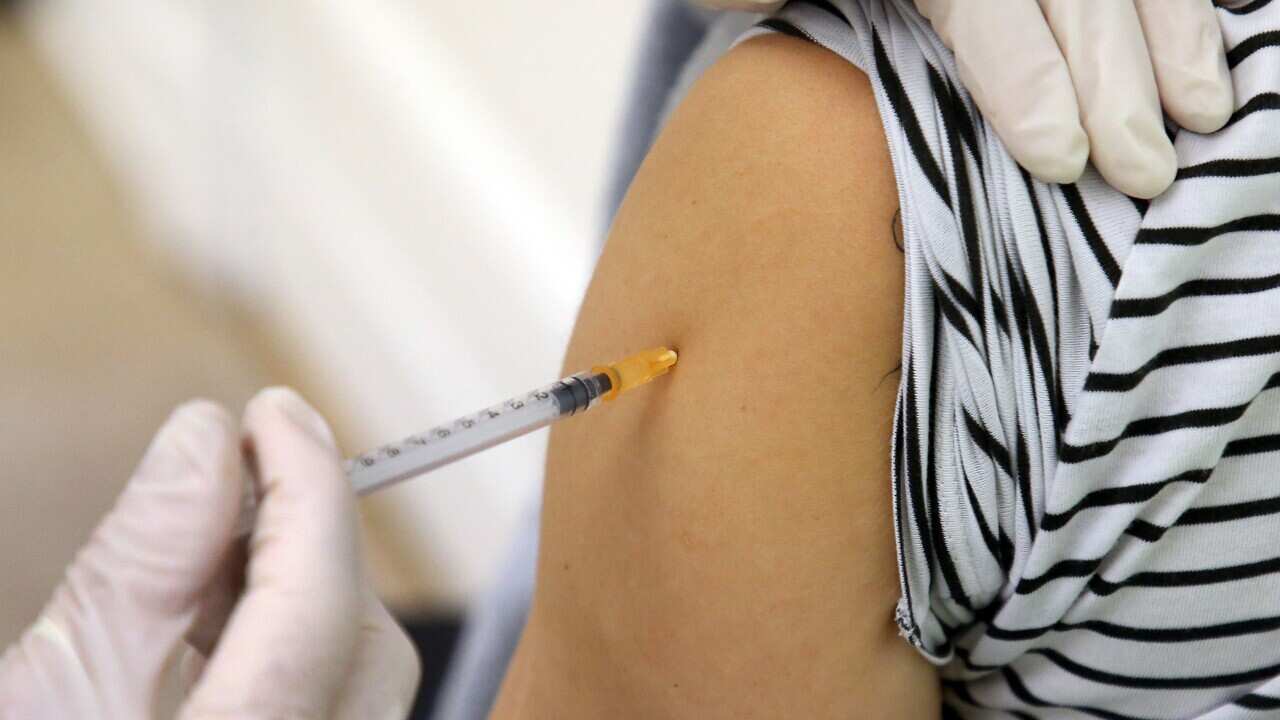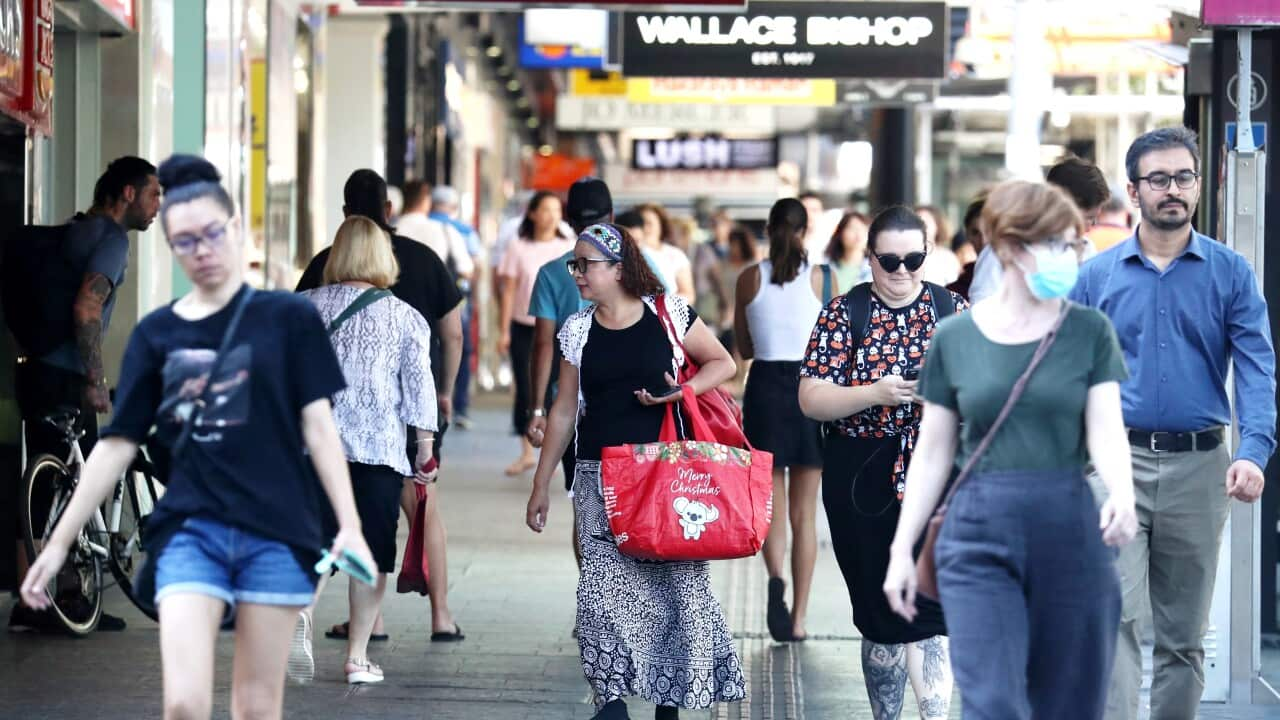Key Points
- There were hopes Australia had reached a 'milestone' — a week where there were no COVID-19-associated deaths.
- But new data shows that deaths were recorded in that period.
- An expert said another COVID-19 wave was "inevitable".
Hopes Australia had reached a "significant" pandemic milestone have been dashed after new data revealed there were COVID-19-associated deaths in a week where the figure was believed to be zero.
Department of Health and Aged Care figures — which date back to January 2022, just over two years after the COVID-19 pandemic was declared — showed the rolling seven-day average of deaths fell to zero on 29 February this year. It jumped back up to one on 3 March, before returning to zero two days later.
But new data published on Friday showed the average was six deaths on 29 February, and five on 3 March.
It highlights that there have been waves of COVID-19-associated deaths, which have become smaller over time.

New data released by the Department of Health and Aged Care on Friday showed COVID-19-associated deaths were recorded in a period believed to have had zero. Source: Supplied / Department of Health and Aged Care
And Sanjaya Senanayake, an associate professor and specialist in infectious diseases at the Australian National University, said the result was "great news, but not unexpected".
But not all experts were convinced.
James Wood, an associate professor and infectious disease modeller at the University of NSW, said the data was encouraging but did not believe it was accurate.
"Our near real-time reporting system for reporting of deaths has mostly wound down and we now need to rely on the slower ABS reporting which tends to occur at about a two-month delay," he said.
The Department of Health and Aged Care also cautions that there may be delays in death data reporting from the states and territories, "particularly for the last two weeks".
Why are we seeing fewer COVID-19 deaths?
COVID-19-associated deaths, and hospitalisations do appear to be trending lower, which Professor Paul Griffin, an infectious diseases physician and clinical microbiologist from the University of Queensland, said was "not an accident".
"It's through a combination of factors," he said.
"We've obviously had vaccines and a recently-updated vaccine and we've got antivirals, both early for people at high risk, as well as those to help people in hospital with severe disease.
"Then, of course, the other factor is that most people have been exposed (to COVID-19) at least once, if not many times, and while it's not a substitute for vaccination, there's an element of natural immunity that's derived from that."
Professor Adrian Esterman, chair of biostatistics and epidemiology at the University of South Australia, agreed, saying the low rates weren't "really surprising".
"Overall we can say that Australia is in a trough, and most of the world is as well," he said.
Does this mean COVID-19 is over?
No, not exactly.
Esterman said while Australia was in a "much, much better place" than a couple of years ago, over 22,000 confirmed cases had been recorded so far for March — with more data still to trickle in.
"That's the tip of the iceberg, because the vast majority of people don't report it anymore, so Australia is still fairly much awash with COVID-19," he said.
"It's not seasonal nor predictable at this point in time … but it will happen," he said.
"We just need to make sure that we maintain a level of awareness and preparedness so that we continue to minimise the impact.
"We'd hate to see those numbers rise higher than they should be because we're not doing the right things."
With Australia facing the "double whammy" of and winter approaching, Esterman warned the next wave would be here sooner rather than later.
"My own feelings are that we are going to see another winter wave probably happening in the next four or five weeks, starting now," he said.
The next wave would likely be caused by one of two things, he said.
"One is that, is mutating rapidly and now some of its descendants are really taking off … or it could be another sub-variant which comes along."
With many in the community still vulnerable to hospitalisation or death as a result of COVID-19, Australian Medical Association (AMA) vice president Dr Danielle McMullen said it was important not to become complacent.
"As we head into winter, we must be mindful of all respiratory illnesses — COVID, flu, RSV, and others," she said.
“What might just lead to mild symptoms in many people can be life-threatening to others," she said.
"The medical advice is clear. Stay home when you’re sick, and particularly avoid contact with the frail elderly. Wash your hands often and, of course, get your vaccinations up-to-date."













